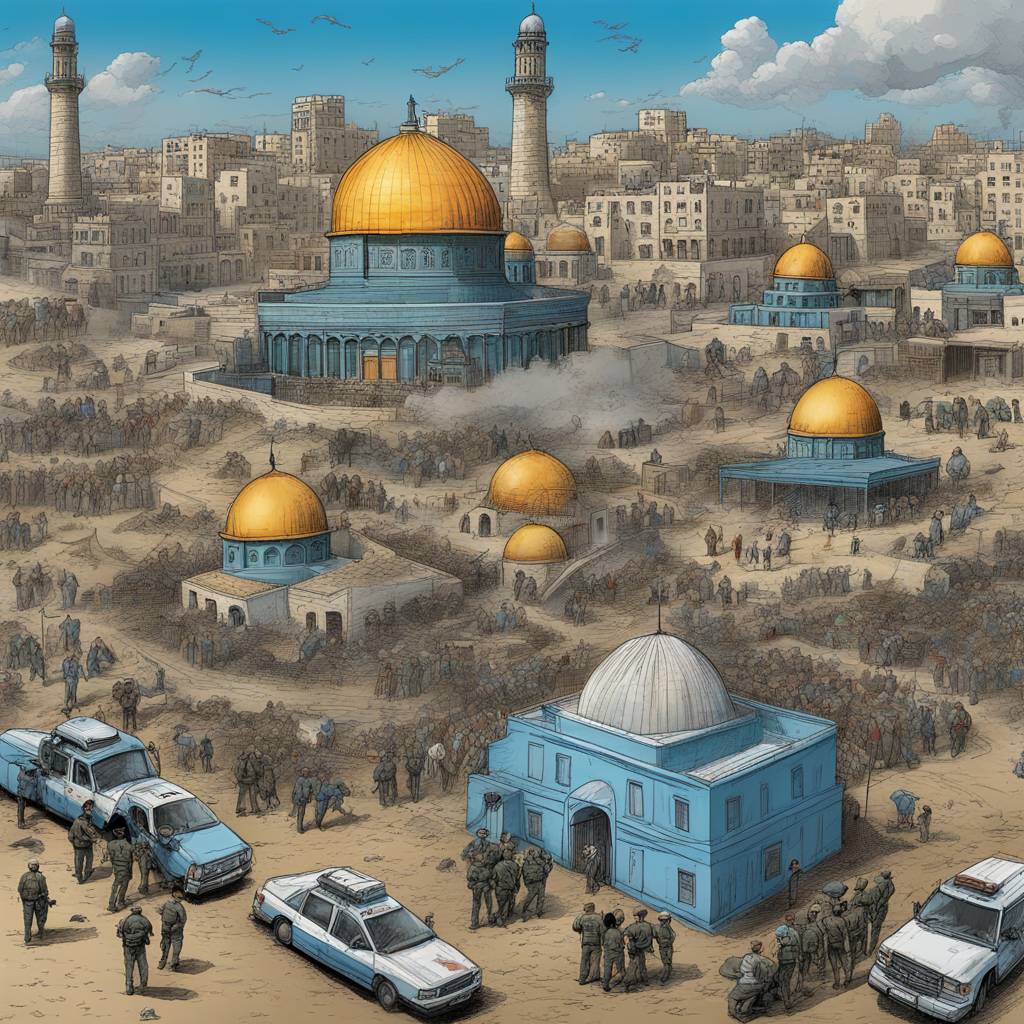U.N. Secretary-General Antonio Guterres emphasized the need for a cease-fire in Israel during a visit to Jordan, stating that there is a growing international consensus supporting this idea. Guterres also warned against a possible ground invasion of Rafah, noting that it could lead to a humanitarian disaster. The U.S., European Union, and the Muslim world are among those urging Israel to pursue a cease-fire to prevent further escalation of the conflict.
The international community is increasingly united in calling for a cease-fire in Israel, with many countries expressing concern over the potential humanitarian consequences of a ground invasion of Rafah. Guterres highlighted the importance of avoiding further violence and working towards a peaceful resolution to the conflict. He emphasized that a cease-fire is necessary to prevent further suffering and loss of life among civilians caught up in the conflict.
Guterres’ comments come amid ongoing violence in Israel and Gaza, with both sides continuing to exchange fire and casualties mounting on both sides. The situation has escalated in recent days, with fears of a ground invasion of Rafah adding to the tensions. Guterres’ visit to Jordan provided an opportunity for him to address these concerns and emphasize the importance of a cease-fire to prevent further bloodshed.
The U.N. secretary general’s statements reflect a growing sense of urgency among the international community to address the conflict in Israel and find a peaceful solution. Guterres’ calls for a cease-fire have garnered support from various countries and organizations, with many recognizing the need to prioritize humanitarian concerns and protect civilian lives. The escalation of violence in the region underscores the importance of swift action to prevent further suffering and loss of life.
Guterres’ remarks signal a shift in the global response to the conflict in Israel, with more countries and international bodies calling for a halt to the violence and a renewed commitment to diplomatic efforts. The prospect of a ground invasion of Rafah has raised alarm bells among many, prompting calls for a cease-fire to prevent a potential humanitarian disaster. Guterres’ visit to Jordan served as a platform to convey these concerns and push for a peaceful resolution to the conflict.
In conclusion, the growing international consensus on the need for a cease-fire in Israel reflects a shared commitment to preventing further violence and protecting civilian lives. Guterres’ statements underscore the urgency of finding a peaceful resolution to the conflict and avoiding a potential humanitarian disaster. The international community must continue to work together to de-escalate the situation and prioritize diplomatic efforts to bring an end to the violence in Israel and Gaza.


